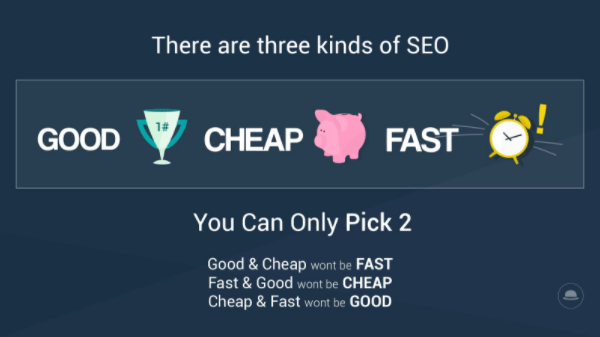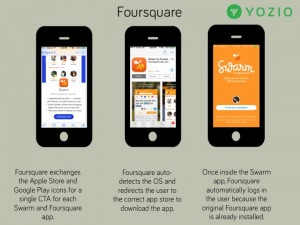How much should you be paying for search engine optimization (SEO)? Columnist Marcus Miller breaks down what factors go into SEO pricing.

How much does SEO cost? It’s the proverbial, “How long is a piece of string?” question. And if you think about it, this is not without good reason. SEO is not as easy to nail down as, say, sending out a direct mail campaign to 100 recipients. In some ways, it is not always as easy to measure, as many marketing activities may impact organic search traffic.
The cost of SEO is also directly related to the potential rewards. Ranking nationally for a highly prized keyword that may be £10 per click in AdWords will have far more costs associated with it than ranking for a locally oriented keyword. But even on a local level, there can be huge variability — and whether you want to rank in a state, county, city, town or micro-area like a borough or village will influence how difficult this will be. This, of course, influences the price of SEO for your unique situation.
In this post, I am going to look briefly at the benefits of organic search via SEO to better frame the question, how much does SEO cost? My goal here is to help you make an educated decision regarding how much you should be investing and how you measure results.
Whether you are a local business, small business, national business or even international business, I hope this guide will help you determine what your investment should look in organic search.
SEO prices: What determines cost?
SEO pricing has to consider the following variables:
- Situation. Where are you currently?
- Objectives. Where do you want to be?
- Timeline. How fast do you want to improve?
Only by looking at these three elements can any agency calculate how much SEO should cost for your business.
Let’s consider the following example:
- A local business site currently ranks in the 12th position for their main target keyword (and variations thereof).
- Competitors on first page have more links and higher authority metrics.
- Competitors have invested more in local SEO.
With this information, some metrics can be determined:
- An approximate amount of links
- An idea of how much work is needed on the local SEO front
- A rough timeline to achieve this
By analyzing a client’s current situation, understanding their objectives and determining the required timeline, we can calculate a price. There are lots of variables here, and we don’t always know what our competitors are doing, but an attempt should be made to calculate the level of work required and subsequent price.
And of course, the industry will in part determine costs. If you make $100 from a new customer, you can expect to pay less than if a customer is worth several thousand dollars. The marketplace, to some extent, regulates price (assuming the work is done properly). It is all about return on investment.
The last variable is maintenance and keeping your flag flying once visibility has been achieved. SEO is a moving target. You step up your game, and the competition does the same. It’s tough, and the best approaches need to be tailored to the unique situation and goals of the business.
This is why simple SEO KPIs like keyword rankings are not enough, and a more considered approach to measuring SEO success is almost always required to track progress.
High-quality SEO vs. cheap and nasty
Which brings us to the other key variable here: quality. A little story here may help illustrate the qualitative issues that still abound in the SEO industry.
This week, a local PPC client of ours called us up and detailed a sales call they had received from a local SEO firm. This firm was trying to sell them SEO and detailed the process that they would use to build backlinks. The gist of this process was to find relevant websites that had expired, buy those sites, and then place content on them that links to the target site.
This is essentially a PBN (Private Blog Network), a network of sites that is under the control of a single entity (in this case, the SEO company) and used to artificially build links. This approach has many names: link farm, link network, blog network and so on. This is what Google would classify as a link scheme, and it’s something they have been targeting with manual penalties and algorithmic adjustments since 2014.
Thing is, this client was sold. They wanted it. After all, it sounded too good to be true. But when things sound too good to be true, they often are. Really, alarm bells should have been ringing when this supposed SEO company was doing speculative telesales. But that is a whole other story.
The point here is that there are services in the UK that offer SEO for £50 ($65) per quarter. Or £15 a month. Realistically, what kind of marketing can be done for £15 a month? These services are either doing nothing or utilizing owned networks of sites to add links.
At best, they are largely ineffective. At worst, you could end up with a penalty or some form of negative equity. Cheap, yes. Nasty, most definitely. If you are building a long-term business, you don’t want to focus on these bottom-of-the-barrel strategies.
The takeaway here is that you are responsible for what is done in your name. If you employ a cheap SEO company and don’t do the research, then this will be very much your problem when things don’t work (or you are penalized).
If you are building a business, you need to play by the rules of the biggest marketing platform out there. And the rules are not always terribly clear. But think in terms of value and common sense, and you won’t fall foul of the thousands of frankly unethical, back-street SEO companies out there.
It is not all bad news, though. There are over 5 million small businesses in the UK and around 30 million in the US, and the majority of these have really poor SEO. So, the barrier to entry here is often not terribly steep. Just remember the four variables of situation, objectives, speed and quality.
Enough already! How much does SEO Cost?
Caveats aside. The following is based on our experience and the studies we have been able to plunder to get some data.
SEO prices in the US
There is more data out there regarding SEO prices in the US than in the UK. Moz published the results of a survey on SEO providers that included pricing, and it showed a huge range of monthly pricing. These prices are not specific to small businesses, but still, they give us an idea.
Survey Question: For those clients you service with ongoing/multi-month contracts, what is the average client’s monthly billing?
- 10% — less than $500
- 27% — $500-1,000
- 29% — $1,000-2,500
- 20% — $2,500-5,000
- 15% — $5,000-10,000
There is a lot of variation out there, but the majority of businesses are spending less than $5,000 per month on SEO in the US based on this survey. Forty percent of these people are spending less than $1,000, which is where the truly small businesses and startups often lie. Remember, these prices likely map to the level of difficulty and scope of the project. Those paying less than $500 per month are probably local businesses!
SEO prices in the UK
There is no study as such, but being at the helm of an SEO and PPC agency and having worked with thousands of businesses over the years, I do have some insight into what pricing looks like.
- £50-£150 per month — low-end SEO (or low competition)
- £150-£300 per month — mid-range small business SEO
- £300-£500 per month — more competitive mid-range SEO
- £500-£1,000 per month — high-end small business SEO (usually a national business)
- £1,000-£2,000 per month — high-quality for competitive industries
- £2,000 upwards per month — high-value businesses with content-led SEO approach. Typically a national or multi location business.
In practice, what we see is that the general street-level SEO companies tend to work from £300 upwards. Then there are some online small business SEO providers that work from around £50 to £150 per month. It is hard to know what some of these actually do to add value.
What should you be spending?
The prices above are all relative, though. If you are a small but national business in a competitive space, then you are going to need to pay more for SEO than a small business in a local space. Think e-commerce online store versus a local plumber. The size of your market and potential profit will to some extent dictate what you should be spending to be in the running.
So, what should you pay? How do you determine the value of SEO? The only true answer to this question lies in your business and current situation. If profits are big, expect more competition. If profit is low, then typically, there will be less competition. If you have a long way to go, expect to pay more than if you just need a final push into the top three.
Ensure that your provider explains to you how they calculated which service(s) you need, and avoid the very low end of the marketplace, as the automation required to deliver SEO at $50 per month or some such will often lead to problems down the road.
The project management triangle as it relates to SEO is useful here:

SEO & web design
The above mainly looks at the monthly costs of SEO assuming a well-optimized website is already in place. If that is not the case, you may need to consider the costs to build an SEO-friendly website. Your website is your home online and is central to your SEO efforts. A well-optimized website platform that delivers amazing usability for mobile users is crucial. This can be a big investment, but a website that is not built with search and happy users in mind is an SEO wooden leg.
ROI: Why ‘How much does SEO cost?’ is not the right question
At the end of the day, return on investment (ROI) is what matters. If a lead costs you $20 from paid search, $15 from social ads or $5 from organic search, then organic is a highly valuable channel which offers the best overall return on investment.
Measuring these factors is not always easy but is absolutely essential to understanding what the return is on all your digital marketing activities. And for the many customers we serve at Bowler Hat, SEO and organic search still tend to deliver the best overall ROI. This is true when we look at brand awareness, engagement and across the full spectrum of conversions from lead generation to sales.
I would love to hear what you pay currently and your experience with SEO. You can catch me on Twitter or LinkedIn, and I am always more than happy to natter about SEO, PPC or digital marketing.
[Article on Search Engine Land.]
Some opinions expressed in this article may be those of a guest author and not necessarily Marketing Land. Staff authors are listed here.
Marketing Land – Internet Marketing News, Strategies & Tips
(88)
Report Post






